From November 13th to 14th, the School of Creativity and Art of ShanghaiTech University successfully held the second Entertainment Design Forum. This forum invited more than 20 front-line experts from industry and academia at home and abroad to talk about how to create a credible entertainment experience for the audience, how to communicate and cooperate with the content side and how to promote science and engineering education through the interaction of online and offline, focusing on the keyword Make-Believe (creating credibility and suspending doubt). A series of discussions have been carried out on these three key issues.
Shouzhi Wang, vice dean of the School of Creativity and Art, said that the school expects to provide an academic platform for exchange and interaction by continuously holding entertainment design forums, and conduct a comprehensive discussion on the concept, industry practical experience and talent training direction of entertainment design education around the world.
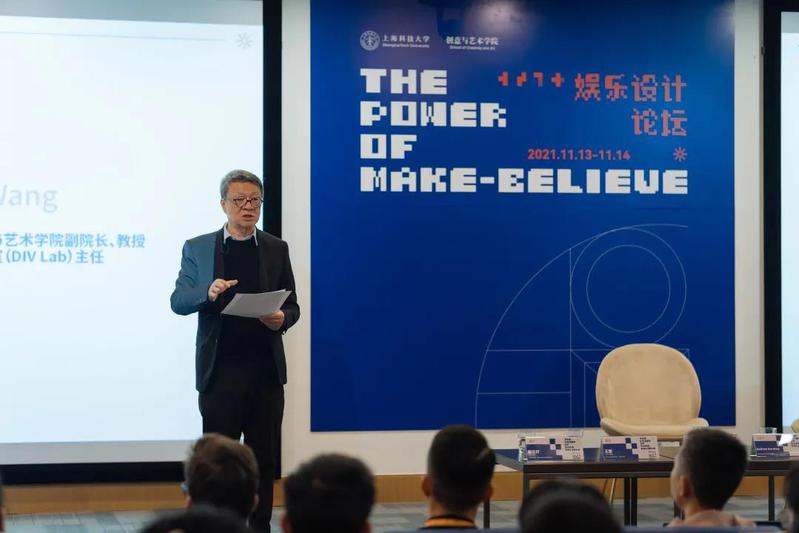
Carry forward the past and open up a new chapter
In 2020, the School of Creativity and Art held the first Entertainment Design Forum, which took the lead in putting forward the concept of entertainment design in China. It combined the concepts and cases of entertainment design from multiple themes such as game education, science fiction film, virtual idol and exhibition architecture, and also discussed the creation of different forms of entertainment content and experience.
This year, the School of Creative Arts hopes to combine the scientific research direction, scientific research or design projects of the college's laboratory, integrate the classic concepts and concepts in the practice of entertainment design, explore the content, form, audience acceptance mode, creation and production means of entertainment products, and how to complete the iteration from the traditional era to the information age through the addition of technology.
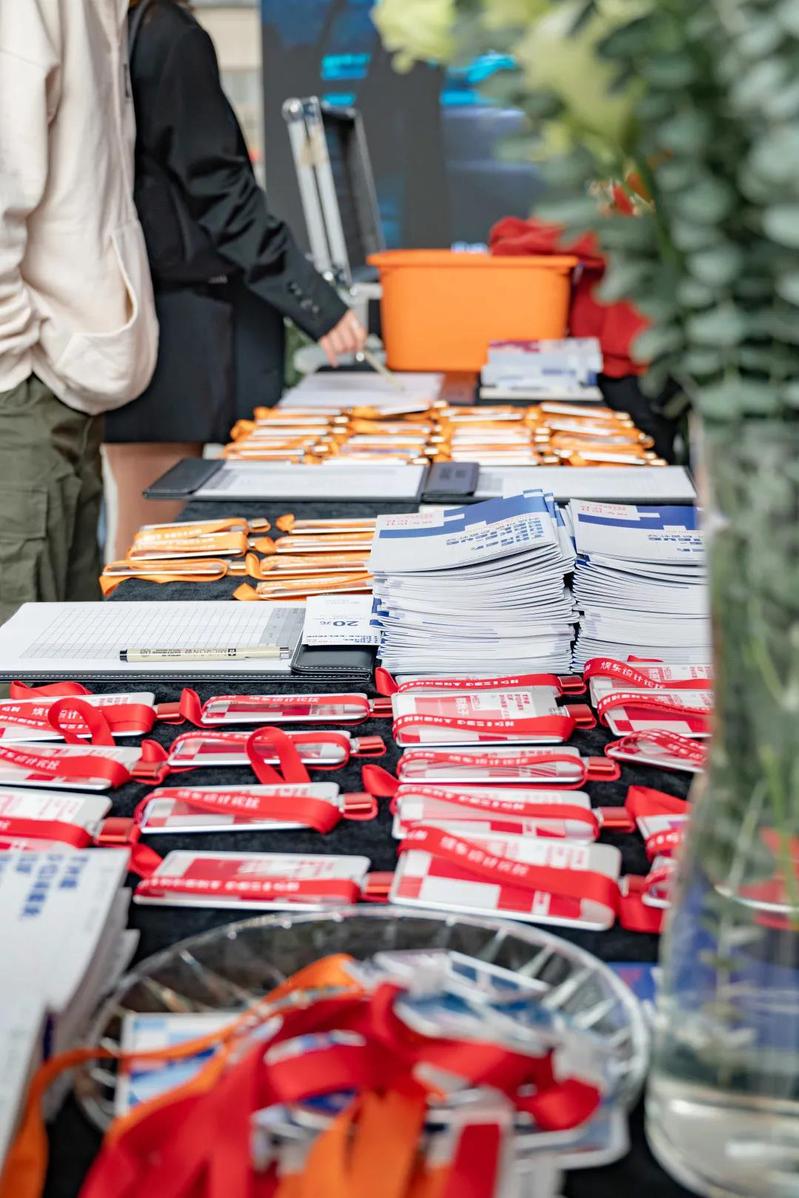
The forum is divided into five themes: creativity created out of nothing, territory, outlet and opportunity of real entertainment, interactive design helps popular science education, coordinated development of intelligent technology and media technology and artificial intelligence in the creative field. It aims to find historical continuity and interdisciplinary commonalities from the categories and creation of complex entertainment contents. At the same time, key principles and methods that can cope with changes in technology and industrial frontier.
The host and guest hold their hands and embrace the five dimensions
The first session of the forum was presided over by Shouzhi Wang, vice president of the School of Creativity and Art, and Andrew Gormley, associate professor. The keynote speakers were Holly Willis, Professor ofUniversity of Southern California, and Scott Robertson, former director of the Department of Entertainment Design of Art Center College of Design. The two speakers first discussed the territory of the two famous schools in entertainment design, and how to bring creative, convincing and real experience to the recipients from the aspects of traditional character driven narrative method, narrative synergy in architecture or space, and the application of cutting-edge technology. Zhixuan Dai, chief brand officer of Heytea, and Chu Wang, co-founder of Beidou studio also participated in the discussion.
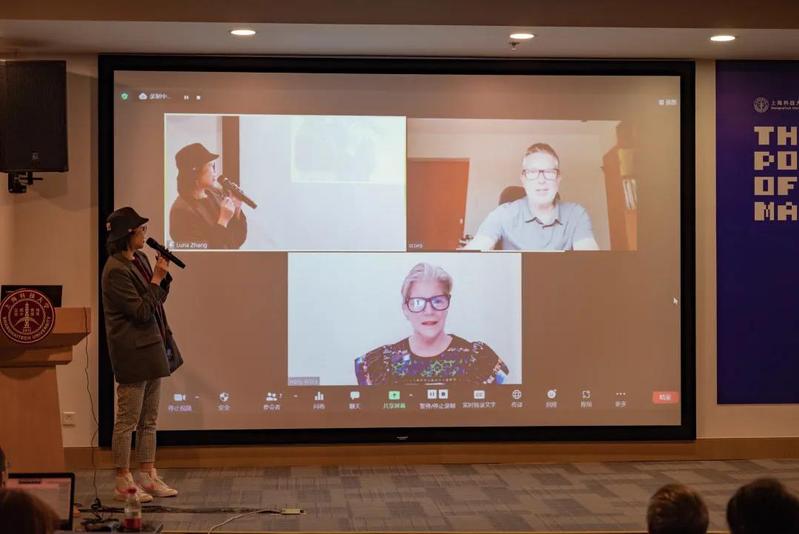
Make-Believe gives us the ability to create a world in which we can live, Holly Willis said. In this world, we try to solve some of the most essential problems, such as life and death, love and honor, struggle and despair, and of course, hope.
The theme of the second meeting was the territory, outlet and opportunity of real entertainment, which was presided over by Xiaoqun Bao, the distinguished professor of the School of Creativity and Art, and Shen Jiamin, a creative producer of Creative Entertainment Lab (CEL). Dong Wang, the general manager of Teamlab Shanghai, Yaowu Zhu, CEO of UMEPLAY, and Chu Wang, co-founder of Beidou studio discussed the innovative development mode of live entertainment and the corresponding talent training methods under the new entertainment creative mode, which triggered a deep thinking on the integration relationship between live entertainment and consumers, application scenarios and new technology empowerment.

School of Creativity and Art at ShanghaiTech naturally undertakes the important task of conveying the meaning of science and technology and popular science content. Xiaoye Ji, former first-class inspector of Shanghai Municipal Commission of Science and Technology said, science popularization is to improve people's scientific literacy and to build a scientific social culture. Therefore, science popularization is a process of disseminating science and culture and building a social culture for this purpose. In this process, what role do design methods and ideas play?
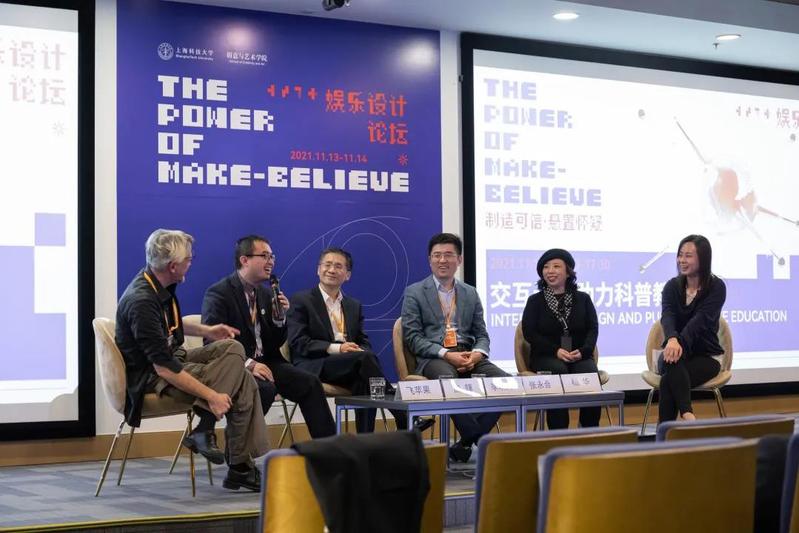
During the discussion on the theme of interactive system design and popular science education, Xiaoye Ji met with Hua Yang, associate professor of School of Creativity and Art and executive director ofDesign Interaction Visual Lab (DIV), Yonghe Zhang, deputy director of the Innovation Academy for Microsatellites of CAS, Wei Shi, director of the network popular science department of the exhibition and education center of Shanghai planetarium, and the exhibition planning and design team of Shanghai planetarium Alexander Brandt, founder and chief designer of flying around, discussed how to visualize abstract knowledge, how to correctly use media technology and how designers can better communicate with scientists, and wanted to focus on the education of interactive design and its application in science popularization.
The best way to popularize science is to convey content in multiple dimensions, not only the popularization of science, but also the popularization of art, Alexander Brandt said. The combination of science and technology and art can create a better life. the discussion was chaired by Qin Yi, a senior media person.
The fourth meeting was presided over by Xu LAN, assistant professor of School of information and head of multidisciplinary artificial reality studio (MARS) of Shanghai University of science and technology. Around the topic of coordinated development of intelligent technology and media technology, the guests and speakers shared the pain points of digital media production technology in all walks of life and their expectations for intelligent response.
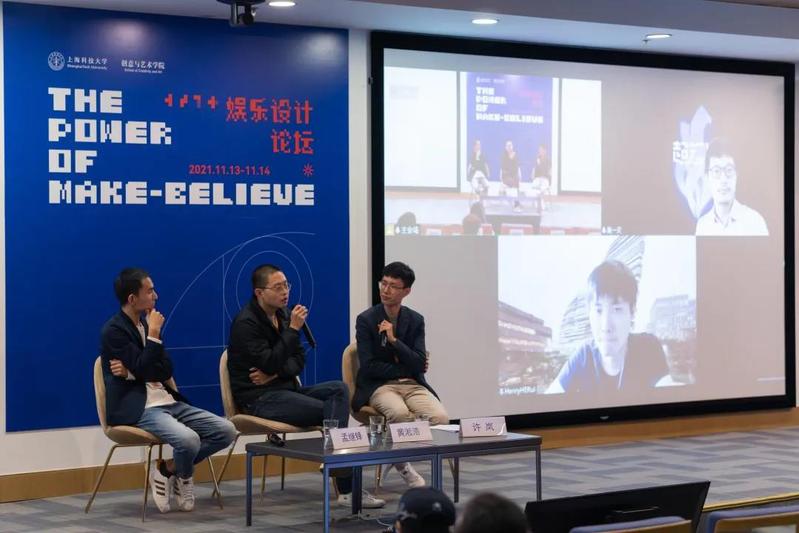
I think both technology and art are in a step-by-step process, said Meng Jifeng, founder of Letang media. So now we are more creative and don't have to worry about whether the present is the best or the worst era. Growth is the most important.
There were also Yitian Gao, chief operating officer of the first youth film exhibition, Huang Songhao, a doctoral student in the school of design of the Hong Kong Polytechnic University, a former NetEase senior game engineer and Ruihe, the director of the lightning Institute.
The last meeting was presided over by Jie Wang, assistant professor of the School of Creativity and Art and director of the Ai painting and interdisciplinary creation project. The speakers were Feng Peng, Dean of the School of Art of Peking University, and Jun Wang, distinguished professor of the artificial intelligence and digital art laboratory (Aida) of Shanghai University of science and technology; The guests were Zi Yang, an independent curator, Jun Jiang, an art historian and curator, sun fanglei, an associate researcher of Aida Laboratory of creative arts college, and Zheng Tian, an assistant professor. Several guests discussed such issues as artistic standards and artificial intelligence creation, whether science and technology is a hero or a traitor to artistic liberation, and mathematical inevitability in the history of art and culture, which triggered a reflection on the essence and situation of art in today's era inside and outside the industry, so that people can consciously see the real flesh and blood of art beyond symbols, systems and algorithms.

Shouzhi Wang said: School of Creativity and Art plans to set up the major of entertainment design, so the forum that has been held for two consecutive years is also to explore more possibilities for the major. In the future, what we want to cultivate is not only technicians who will cater to the market, but entertainment design talents who can tell stories, have vision, taste and use their works to reflect their own character.


